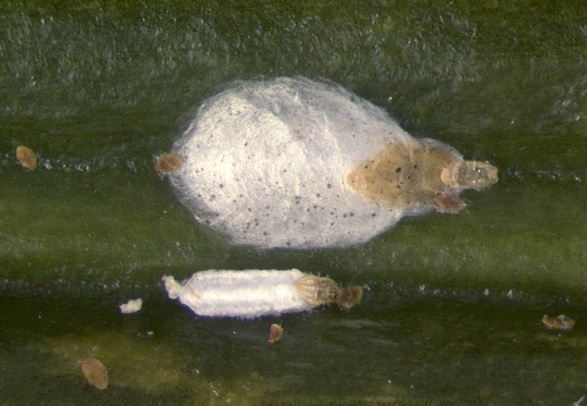
Cycad aulacaspis scale
Aulacaspis yasumatsui Takagi
(Insecta: Hemiptera: Diaspididae)
Adult females have orange bodies covered by white, waxy armor. They are 1.2 to 1.6 mm long and variable in shape. The males are 0.5 to 0.6 mm long and elongate.
Females undergo three instars, and the development time from egg to adult takes about 28 days. Cycad aulacaspis scale can spread by exposure of noninfested plants to infested ones. This spread is facilitated by human movement of plants bearing undetected scales.
Native to Thailand, the cycad aulacaspis scale first was discovered in Miami in 1996. It now is found throughout Florida as well as in the U.S. Virgin Islands and Hawaiian Islands (Hawaii and Oahu).
Cycad aulacaspis scale attacks cycads in the Zamiaceae, Stangeriaceae and Cycadaceae families. This scale inhabits both the leaves and the roots of its hosts, causing necrosis of fronds and eventually plant death.
Images
To save the Web-optimized images shown below to your hard drive:
PC users: right click to "Save Picture (or Image) As..."
Mac users: click and drag to your desktop.

Female
(top, oval shaped) and male (bottom, elongate) adults of cycad
aulacaspis scale, Aulacaspis
yasumatsui
Takagi, on a leaf
(Photographer:
Lyle
Buss, University of Florida)
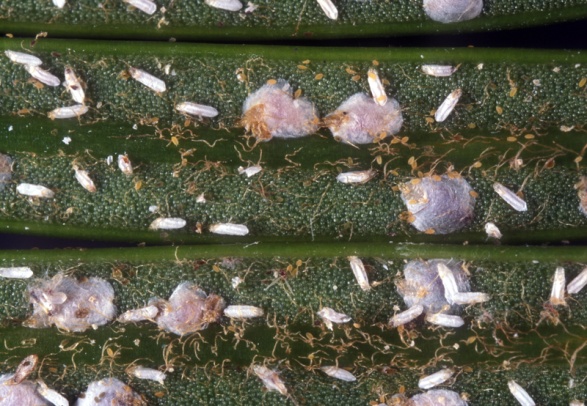
Nymphs
and adults of cycad aulacaspis scale, Aulacaspis
yasumatsui
Takagi, on a leaf
(Photographer:
Lyle
Buss, University of Florida)
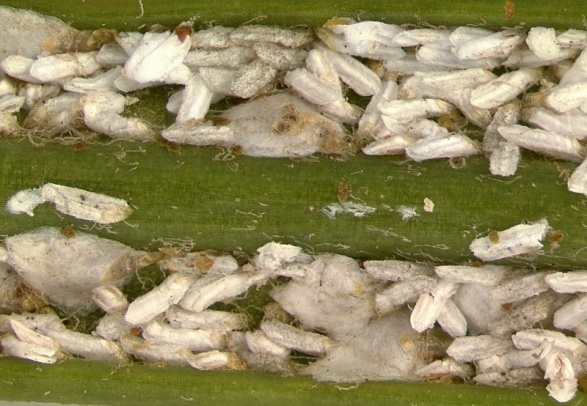
Heavy
leaf infestation with cycad aulacaspis scale, Aulacaspis
yasumatsui
Takagi
(Photographer:
Lyle
Buss, University of Florida)
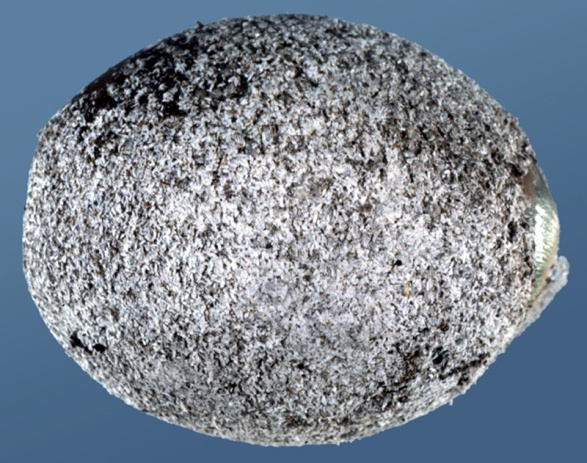
Fruit
infested heavily by cycad aulacaspis scale, Aulacaspis
yasumatsui
Takagi
(Photographer:
Avas
Hamon, University of Florida)
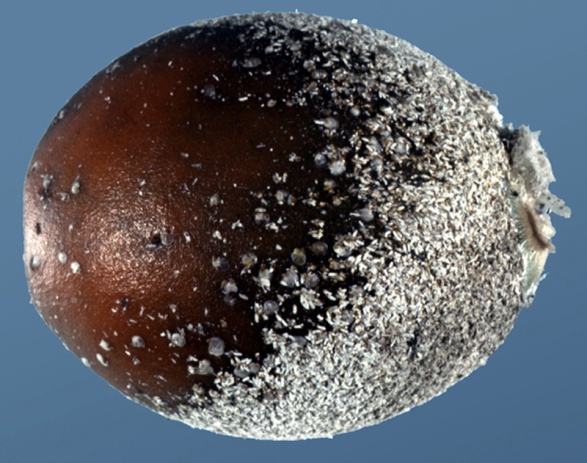
Fruit
infested by cycad aulacaspis scale, Aulacaspis
yasumatsui
Takagi
(Photographer:
Avas
Hamon, University of Florida)
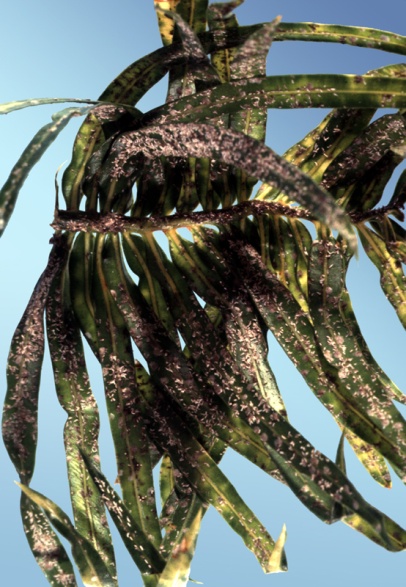
Leaves
infested by cycad aulacaspis scale, Aulacaspis
yasumatsui
Takagi
(Photographer:
Avas
Hamon, University of Florida)
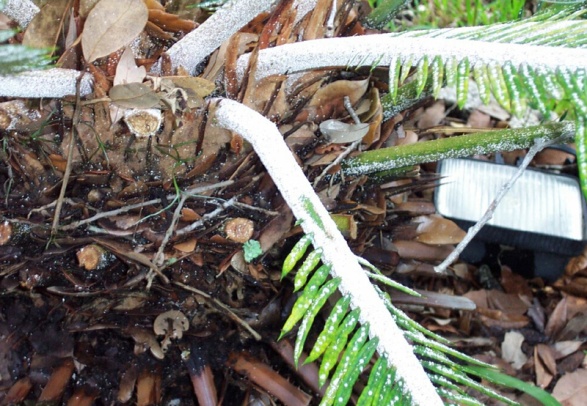
Heavy
plant infestation by cycad aulacaspis scale, Aulacaspis
yasumatsui
Takagi
(Photographer:
Avas
Hamon, University of Florida)